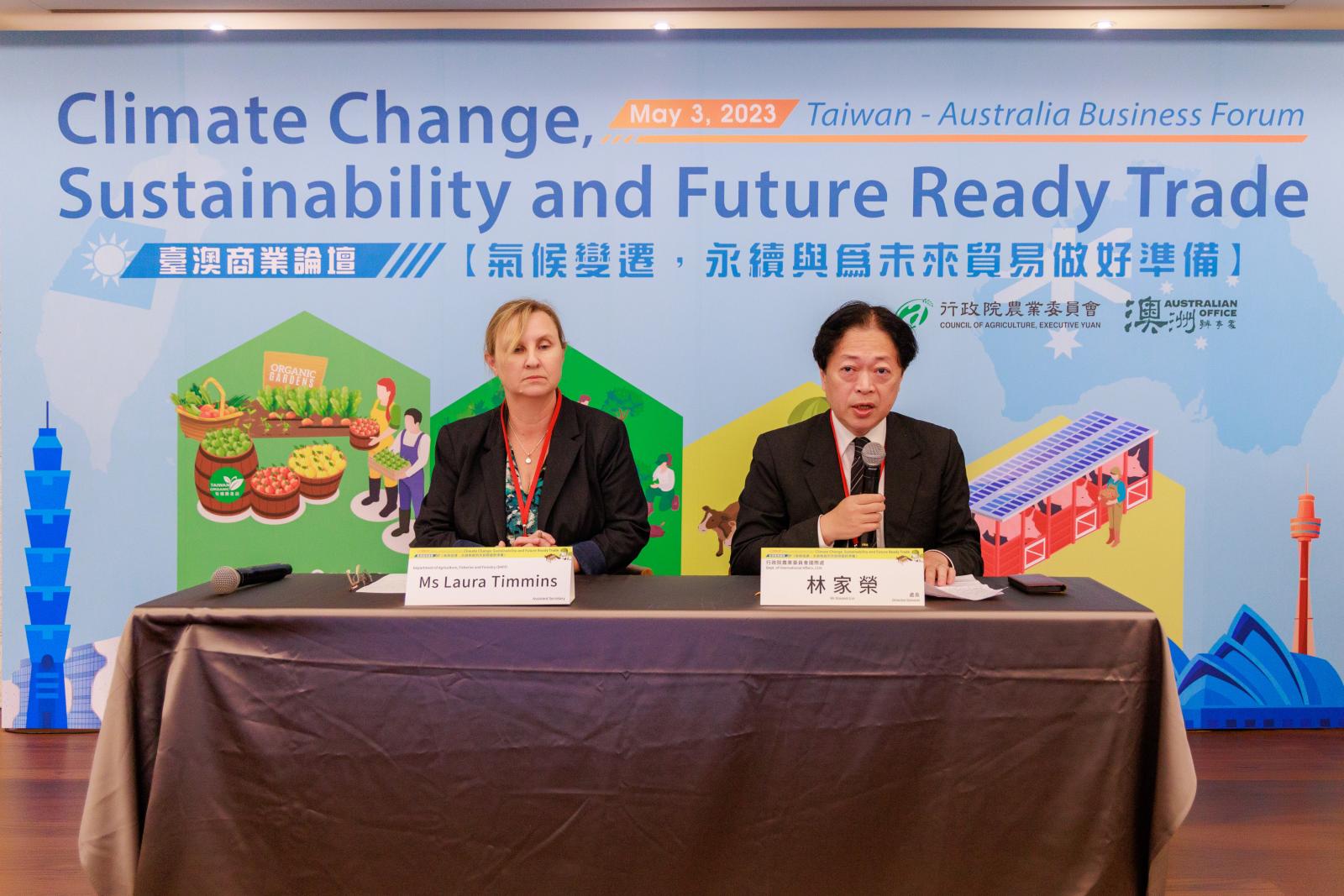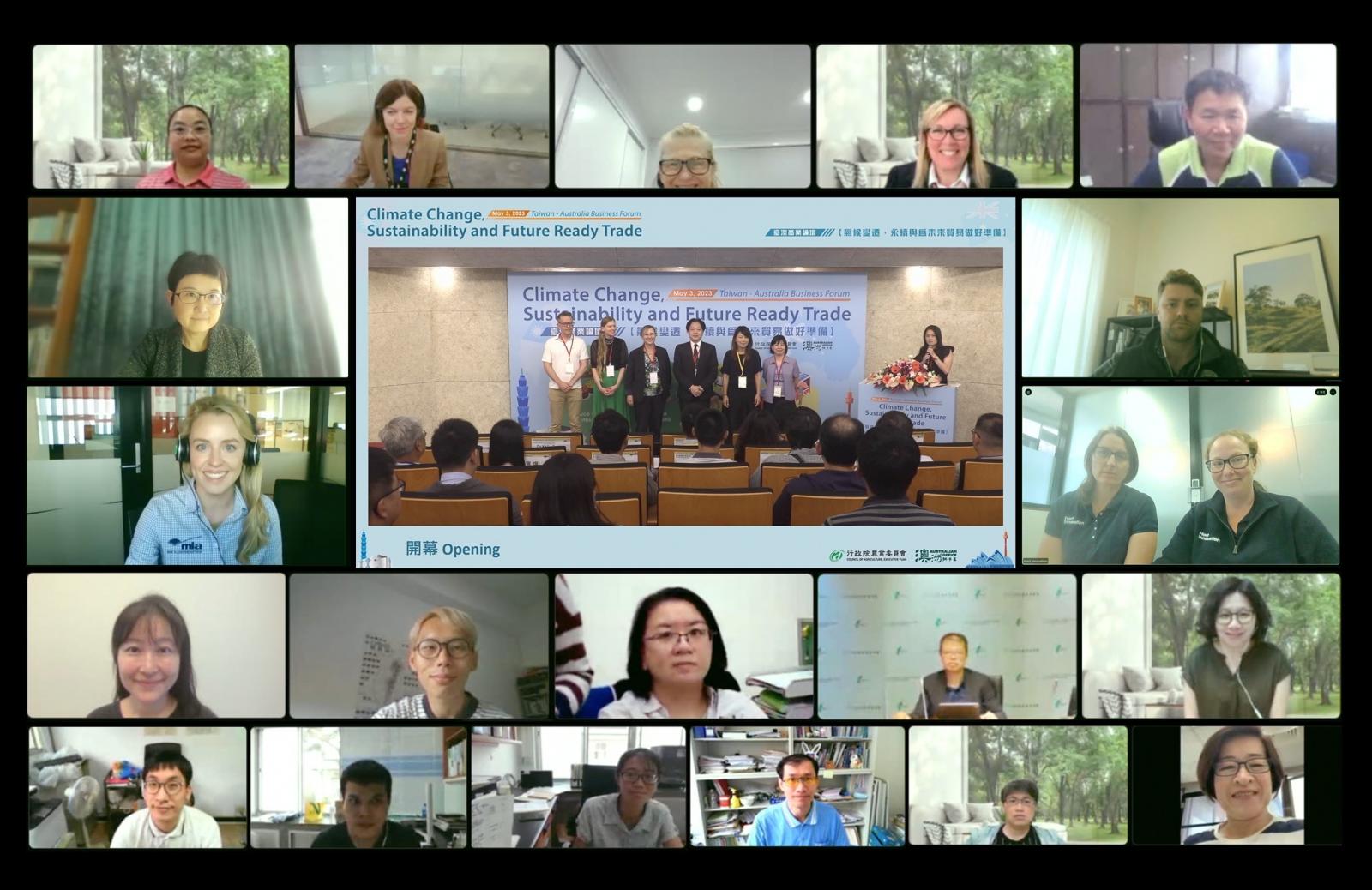News
Taiwan and Australia hold Business Forum to explore business opportunities for net-zero carbon emissions technology in agriculture
The Council of Agriculture (COA) and Australia’s Department of Agriculture, Fisheries, and Forestry (DAFF) held a business forum in Yunlin County on May 3 on the theme of “Climate Change, Sustainability, and Future Ready Trade.” About 150 representatives of industry, government, and academia from Taiwan and Australia participated in person or online. They explored themes including “Building agricultural sector resilience against climate change,” “Climate change, sustainability, and trade: producer public-private partnership case study,” and “Innovative technologies to help reduce emissions or adapt to climate change in agriculture.” They also discussed technology applications and experiences related to carbon neutrality and net-zero carbon emissions in the livestock industry, combining aquaculture and electricity generation, alternative fuels for the fisheries industry, and recyclable crates for exporting. The two parties made progress on developing cooperative green business opportunities in the fields of agriculture and food products.
Deputy Secretary of DAFF, Mr. Matt Koval said in his remarks at the beginning of the forum that issues like coping with climate change and preparing for new forms of trade in the future have a direct impact on farmers, airline economics, and traders, and hoped that industrial associations in Taiwan and Australia will strive to work together to create sustainable products. He said that Australia looked forward to working through the forum to collaborate with the public and private sectors in Taiwan to make substantive contributions to sustainable development for farmers, remote communities, and agriproduct exports. Meanwhile, Deputy Minister of COA, Ms. Wen-jane Tu emphasized that Australia is an important partner for Taiwan in terms of food security and agriproduct trade, and that the two countries share a determination to enhance agricultural sustainable development in the Asia-Pacific region. She expressed the hope that more exchanges between the two countries would lead to new commercial thinking and the joint-development of net-zero or carbon negative technologies for agriculture.
The COA states that Taiwan and Australia have held a number of business forums over the years. Through this forum, public and private sectors from both countries discussed future agricultural trade under conditions of climate change and sustainable environments. They shared measures that could be used by industries including livestock, fisheries, and horticulture to cope with climate change and ensure sustainable environments. Attendees agreed with the ideas of encouraging international and cross-industry commitments to support agricultural sustainability, carbon reduction, and corporate sustainable operations (ESG) programs, assisting farmers to produce eco-friendly products, and improving the quality of life at the local level, with everyone advancing together towards the goal of net-zero carbon emissions in agriculture.
The COA emphasizes that faced with rapidly evolving environmental situation and climate anomalies causing the impact on food supply systems, there is a need for optimizing every link in the agricultural and food supply systems and for reducing their carbon emissions. In particular, agriculture has already transcended the primary production of agricultural products and raw materials to include processing, transportation, and consumption. Considering that in the future green consumption will play a bigger role in the global market, Taiwan and all partner nations should collaborate to promote new thinking that incorporates producer public-private partnerships and enables farmers, fishermen, and industrial groups to actively participate in raw materials supply for the green consumption market, thereby creating a situation that simultaneously benefits farmers, enterprises, consumers, and the overall society and environment.


